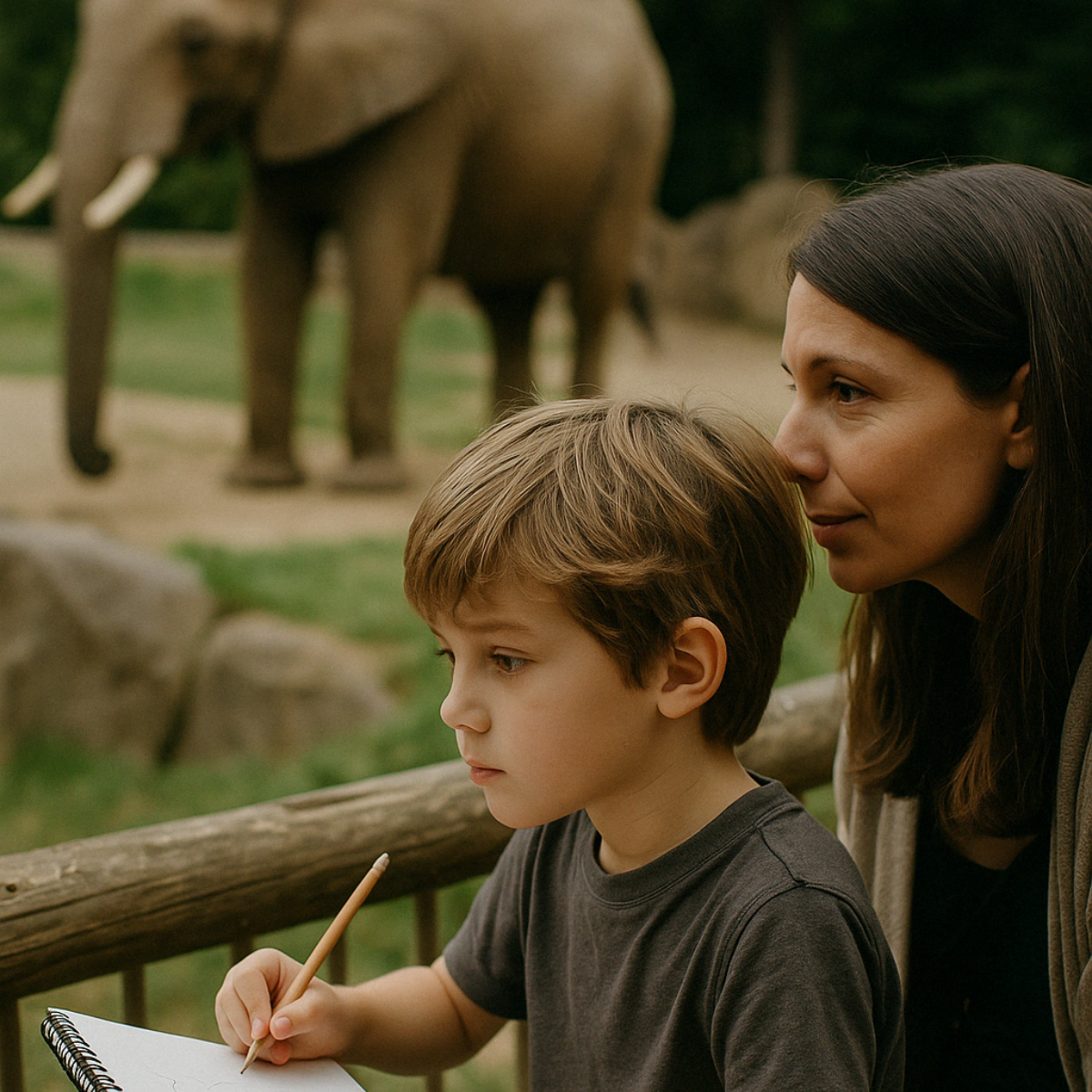
How to Raise a Gifted Child—Without Relying on Schools
Support your child’s brilliance at home—proven strategies for nurturing giftedness beyond the classroom.
[All Ages 🌟] • [Gifted Talented 🙌] • [Nurture 🌱] • [Insights 📊]
Who Says You Need a Stamp of Approval?
You don’t need a school system to validate your child’s brilliance.
You don’t need permission to nurture their spark.
And you definitely don’t need a label to begin the journey.
It Starts at Home
When we think about gifted education, we often picture elite schools, IQ tests, or specialized programs.
But the most powerful place to nurture giftedness?
Home.

Over the past 20 years, I’ve had the privilege of working with gifted students and families around the world. At Gifted Talented, we’ve seen one truth hold steady across cultures and continents:
The most powerful place to nurture giftedness isn’t a school or a test. It’s home.
In homes where gifted children thrive, not just academically, but emotionally and creatively, we’ve noticed certain patterns.
These families:
- Notice what energizes their child, not just what earns praise.
- Support passions that may look quirky, messy, or off-track.
- See success as a journey, not just a scoreboard.
- Prioritize curiosity, courage, and compassion alongside achievement.
And most importantly:
✅ They encourage challenge, not avoid it.
As the Gifted And Talented Institute's Executive Director Julie Song often reminds us:
“There’s joy in the challenge.”
Giftedness isn’t about doing things easily.
It’s about how a child responds when things get difficult.
Many gifted students crave challenge. They come alive when stretched.
That spark? It doesn’t begin in a classroom.
It begins with how they’re seen and supported at home.
The Power of a Growth Mindset
According to psychologist Dr. Carol Dweck, children with a growth mindset believe their abilities can improve through effort, strategies, and feedback. In contrast, a fixed mindset tells kids that struggle means failure.
If you want to raise a gifted child who thrives long-term, teach them to see difficulty as opportunity. When learning feels hard, it doesn’t mean they’re failing—it means their brain is growing.
So when we say “keep an open mind,” we’re really saying:
- Be open to hard things.
- Be open to effort.
- Be open to growing.
That’s how resilience develops.
That’s how true brilliance matures.
Real-Life Example: Raising Gifted Kids at Home
In our home, my 3-year-old son is fascinated by animals.
Not just the usual pets. He can name dozens of rare species most adults haven’t heard of.
Other kids might race toy trucks. He draws elephants.
But what makes this special isn’t just what he knows, but how he learns.

We don’t create a curriculum for him. We create space.
He chooses what we read. He picks the puzzle. He decides what animal game to play next.
One month, it’s all about whales. The next? Reptiles. Then jungle cats.
We follow that spark wherever it leads—through books, puzzles, stuffed animals, pretend play, and zoo trips. He crawls like a jaguar. Roars like a lion. Builds habitats out of couch cushions.
Will he stay stuck on animals forever? Of course not.
When he was younger, it was all about dinosaurs.
He devoured that phase and moved on.
The curiosity, focus, and deep dive learning he’s practicing now will transfer across subjects, seasons, and stages of life.
And when he’s ready to move on, we let him.
No pressure to master or memorize. Just freedom to explore.
This is self-directed learning at its core:
- It starts with curiosity, not agendas.
- It’s nurtured by choice, not control.
- It grows best when we listen more than we lead.
I’m not raising him to become a zoologist.
I’m raising him to stay curious, to trust his instincts, and to feel joy in learning—his way.
Giftedness, at this age, isn’t something you teach.
It’s something you honor.
Rethinking the End Goal: It’s Not Just College
As parents, we want what’s best for our children.
That’s why I find myself rethinking what success will look like for my son 10 or 15 years from now.
Will he go to college? Maybe. Probably.
But does he have to? Not anymore.
For decades, the path for gifted students seemed obvious:
- Score high on tests.
- Get into a top university.
- Land a prestigious job.
But that roadmap? It's outdated.

Sure, elite schools like Harvard, Stanford, and MIT will remain aspirational for many. But across America, smaller universities are shrinking or shutting down.
The traditional college model is no longer the only path to success.
According to ECMC Group 2022 stats, only 48% of Gen Z teens plan to pursue a four-year college degree—down from 71% in 2020.
Why the shift?
Because the world is changing. And so are the opportunities.
New paths are emerging:
- Fellowships (like the $100K Thiel Fellowship)
- Entrepreneurship
- Apprenticeships and trades
- Online and self-paced learning
Gifted kids aren’t just high achievers—they’re builders, creators, and problem-solvers, often before they even hit their teens.
So why squeeze them through a system that may stifle their spark?
The question isn’t just where our kids will end up.
It’s how they’ll get there, and whether we’ve given them permission to define “there” for themselves.
As parents, the best thing we can do?
Expand our vision beyond college admissions and align with who our children are, how they learn, and where their gifts and talents could take them.
Giftedness Is a Signal—Not a Trophy
Giftedness doesn’t make a child better than others.
But it does make them different.
It signals a kind of potential that needs to be seen, supported, and stretched.
It’s not something to hide.
It’s something to honor, nurture, and share not out of pride, but out of purpose.
So let’s stop treating giftedness like a prize to show off, and start treating it like a light to be stewarded and seen.
Let's raise kids who are:
- Not just academically sharp, but emotionally wise
- Not just competitive, but compassionate
- Not just successful, but deeply fulfilled
Because the world doesn’t just need more intelligence.
It needs more human brilliance—boldly lived, and generously shared.
Key Takeaways for Parents of Gifted Children
- You don’t need school validation to support your gifted child.
- Focus on curiosity, character, and resilience.
- Embrace challenges—don’t shield them from struggle.
- Personalize education as your child grows.
- Aim for life alignment, not just test scores or college admissions.
Want More?
Read Part 1: The New Definition of Gifted Talented in 2025 →
GiftedTalented.com
The world's fastest growing gifted & talented community








